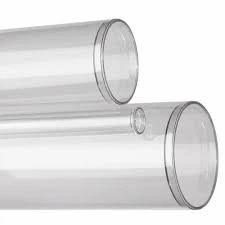Oct . 22, 2024 03:42 Back to list
hdpe sprinkler pipe
The Benefits of HDPE Sprinkler Pipes in Irrigation Systems
High-Density Polyethylene (HDPE) pipes have revolutionized the way irrigation systems are designed and implemented, especially in agricultural settings. With their robust properties and versatility, HDPE sprinkler pipes have become an essential component for efficient water management. This article explores the advantages of using HDPE pipes in sprinkler irrigation systems, shedding light on their benefits, applications, and environmental impact.
Durability and Longevity
One of the standout features of HDPE pipes is their exceptional durability. These pipes are resistant to corrosion, cracking, and impact, ensuring a long lifespan that can exceed 50 years under proper conditions. Unlike traditional materials such as metal or concrete, HDPE does not rust or degrade when exposed to various environmental factors, making it an ideal choice for sprinkler irrigation. This longevity reduces the need for frequent replacements, ultimately lowering maintenance costs for farmers and landowners.
Flexibility and Ease of Installation
HDPE pipes are highly flexible, allowing them to be bent and shaped to fit various terrains without compromising their integrity. This characteristic greatly simplifies the installation process, especially in uneven or hilly landscapes. The lightweight nature of HDPE pipes also facilitates transportation and handling, which can lead to significant savings in labor costs during installation. As a result, farmers can efficiently set up sprinkler systems that optimally distribute water across their fields.
hdpe sprinkler pipe

Water Efficiency and Conservation
Water conservation is a crucial concern in agriculture today. HDPE sprinkler pipes are designed to minimize water loss through evaporation and seepage. Their smooth internal surface allows for efficient water flow, reducing pressure loss and ensuring that more water reaches the plants. Additionally, these pipes can be equipped with advanced drip irrigation systems that provide targeted watering, further enhancing water efficiency. By utilizing HDPE pipes, farmers can improve crop yields while conserving precious water resources.
Environmentally Friendly Material
As sustainability becomes a focal point in agriculture, the environmental benefits of using HDPE pipes cannot be overlooked. HDPE is made from recyclable materials and can be recycled at the end of its life cycle. This eco-friendly characteristic contributes to reducing plastic waste in landfills. Furthermore, the efficient water management enabled by HDPE piping systems can lead to less runoff and lower pollution levels in local waterways, promoting healthier ecosystems.
Conclusion
In summary, HDPE sprinkler pipes offer a multitude of benefits that make them an ideal choice for modern irrigation systems. Their durability, flexibility, and water efficiency, combined with their environmentally friendly aspects, position them as a superior alternative to traditional piping materials. As agriculture continues to evolve towards more sustainable practices, HDPE pipes will undoubtedly play a critical role in enhancing irrigation efficiency and promoting responsible water use. Adopting HDPE technology in irrigation systems is a step forward in addressing both agricultural productivity and environmental conservation.
-
Premium PVC Soft Sheets: Clear, Flexible & Durable
NewsAug.12,2025
-
Premium PVC Round Rods: Durable, Chemical Resistant, Easy to Machine
NewsAug.11,2025
-
PP U-channel: Chemical-Resistant, Lightweight & Durable
NewsAug.10,2025
-
Transparent PVC Pipe: Clear Flexible Tubing for Fluids
NewsAug.09,2025
-
Durable PP Rigid Sheet: Versatile & High-Quality Plastic Panels
NewsAug.08,2025
-
Premium Glossy PP Rigid Sheet – Durable & Versatile
NewsAug.07,2025

